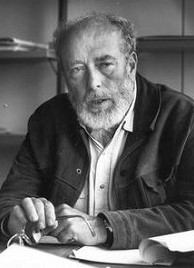
Thomas Luckmann (14 October 1927 - 10 May 2016)
Thomas Luckmann was born on the 14th of October 1927 in Jesenice (today’s Slovenia). He studied philosophy, German, romance linguistics and literature, comparative linguistics and psychology at the Univerities of Vienna and Innsbruck, as well as the New School for Social Research in New York. Carl Meyer, Albert Salomon and Alfred Schütz were amongst his teachers. In 1955 he gained his Master’s degree in philosophy and in the same year he became a university lecturer in the Graduate Faculty at the New School. In 1956 he completed his doctorate in sociology, and was employed in the Department of Anthropology and Sociology at Hobart College, New York. From 1960 to 1965 he started off as an Assistant and then became Associate Professor at the sociological faculty of the New School. In 1965 he returned to Europe to accept a professorship of sociology at the University of Frankfurt. Five years later he went to the University of Konstanz where he was offered a chair. There, he worked as a professor of sociology from 1970 until his retirement in 1994. His most important publications are: “The Social Construction of Reality” (1966; with Peter L. Berger), “The Invisible Religion” (1967), “Structures of the Life-World” (1973; based on Alfred Schütz’s notebooks). As a Sociologist, Luckmann placed himself in the tradition of Max Weber’s interpretive Sociology. In addition to this, Luckmann’s socio-theoretical approach was strongly influenced by Alfred Schütz’s social phenomenology. In an interview he named Alexandre de Tocqueville and Wilhelm von Humboldt as his academic role models. Luckmann was mainly noted for his restatement of classic sociology of knowledge which went back to Max Scheler and Karl Mannheim. By resetting their philosophical orientation, he was able to further develop their ideas to fruition in empirical research. This was accomplished with Peter L. Berger and in doing this, they became the founders of a modern, hermeneutic sociology of knowledge. By developing central aspects of his teacher Alfred Schütz’s theory, Luckmann coined the term “proto-sociology” – a phenomenologically oriented “fundamental discipline” of social sciences. This discipline attempts to establish universal structures of human world orientation. Luckmann also published significant articles on sociology of religion, sociology of moral and time as well as on the question of identity.
